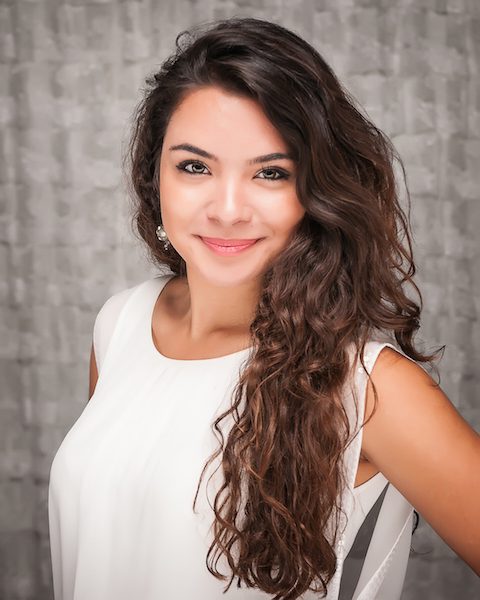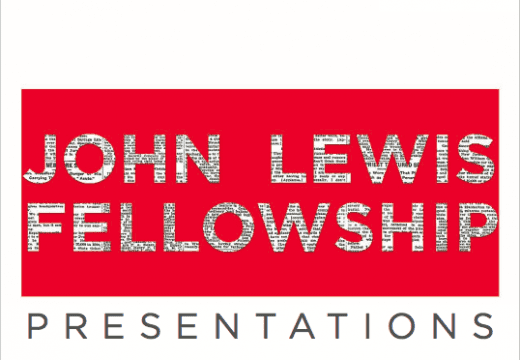Details
Article
Introduction
“You may think you know everything, but you only know this much,” Ramona Big Eagle Moore, expressed to us as she brought her hands very close together to indicate the minuscule amount that a single individual knows about the world. As a Masters student in Human Rights, one would reckon that I knew about Eleanor Roosevelt and the NAACP and the discourse between human rights and civil rights in the United States. Yet, the reality is that I am still learning and my journey for knowledge will never truly be over. The John Lewis Fellowship has opened new doors of education and opportunity in my life. In this paper, I first discuss my learning experience. Secondly, I challenge the integrity of the narrative of history by questioning why certain names are not present in my textbooks. Lastly, I share my hope and efforts to be a positive agent for social change in my country.
Within the very first week, our team of John Lewis fellows assembled to march at the Black Lives Matter Protest in response to the murders of Alton Sterling and Philando Castile.
Learning Experience
My learning experience in the John Lewis Fellowship has been multifaceted comprising of historical teachings from Dr. Sims Alvarado, words of wisdom from Dr. Black, quantitative studies of racial injustices from Dr. Evans, historical analyses from Dr. Anderson, and mind stimulating arguments regarding social change and politics from PhD candidate Littleton. Dr. Sims Alvarado expanded my understanding of the history of slavery and African Americans fight for freedom long before the Civil Rights Movement and Abolitionist Movement. Dr. Evans taught me that segregation has been reproduced in new methods through housing, education, incarnation and economic inequality on mass scales. And most moving in my learning experience, was PhD Candidate Littleton’s challenge to historical narratives on the Black Power Movement. These incredibly scholars have to me to rethink and challenge my current understanding of slavery, civil rights, and social change.
It is imperative that I do not allow myself to fall into the dangerous default and tempting comforts of illusionary social progress.
History always has a different narrative based on the storyteller. I’m ready to listen to all stories and develop my own comprehensive perception. I will not submit to the oneWsided fake illusion that turns a blinds eye to the reality of the New Jim Crow. In the words of Michelle Alexander, “We have not ended racial caste in America; we have merely redesigned it” (Alexander, 2011).
History: Who’s Story?
Throughout our fellowship, I newly introduced to many names that had not been dictated in my American public school education. Why were fundamental woman not mentioned in the Civil Rights Movement? Why had I never heard of Wayard Rustin? Why was history not presenting the full picture? What is the power of manipulating history in reinforcing inequality and injustice? These are a few of the questions that would resonate through my mind as we learned of fundamental leaders who were missing from my understanding of history.
Rustin, a powerful leader and organizer during the Civil Rights movement was never mentioned once in my studies. Was his sexual identity the basis of his absence from history of the Civil Rights Movement?
I like to consider my educational experience very multicultural and international as I received my undergraduate degree in Arizona and Masters in Human Rights in London. Malcolm X proclaims, “Education is the passport to the future, for tomorrow belongs to those who prepare for it today.” But, my education and historical understanding was flawed and prevents my passport to enable my mobility as an effective agent for social change. Rustin, a powerful leader and organizer during the Civil Rights movement was never mentioned once in my studies. Was his sexual identity the basis of his absence from history of the Civil Rights Movement? Additionally, Malcom X was seen as a violent aggressor. Was the State attempting to contain me from acting out in violence even when my human rights have been breached? On that note, who was Fred Hampton? And where were the women in the movement? I was honored to meet Dr. Rosalyn Pope. However, I am sincerely embarrassed to share that I had never heard her name prior. Without these fundamental characters of the civil rights movement and human rights activists, my education paints an extremely fragmented picture of history for me, and it is not fair as it perpetuates further injustices and inequalities.
Agent for Social Change
Within the very first week, our team of John Lewis fellows assembled to march at the Black Lives Matter Protest in response to the murders of Alton Sterling and Philando Castile. In this instance, the need for activism was so strikingly vivid and tangible for me. Collectively we joined the Atlanta community to express our solidarity to combat injustice and mourn the senseless loss of life. I held a sign that proclaimed one of Dr. Martin Luther King’s most powerful quotes, “Injustice anywhere is a threat to justice everywhere.”
This quote captures my core principles as a human rights activist. As my life mission, I aim to empower those who seek to combat injustices and human rights violations occurring throughout our world.
In fulfilling my mission, I have created a potential solution and new mechanism of empowering my fellow allies working as social justice activists. I hope to develop a technological platform for pro-bono workers to aid and support non-profits who aim to advocate for social change and work to address human rights violations. This platform would provide resources that include, but are not limited to: legal aid, communications, branding, finance, and research assistance. Throughout my experience at the John Lewis Fellowship program, I have learned about the value in resources to empower and fuel the realization of movements. This is my key take away from the John Lewis program.
Conclusion
I am greatly empowered and transformed to continue my journey as a social justice change maker and human rights activist.
As a John Lewis Fellow, I am ready to begin my active search for good trouble. My quest for knowledge is equipped with many resources, strategic tools and a powerful network of social justice advocates from around the world. I am greatly empowered and transformed to continue my journey as a social justice change maker and human rights activist.


